I'm going to own something publicly of which I am not proud.
Yesterday, my oldest son's soccer team played for their end of the year championship, something the local league calls the "classic cup." I love my son. I love watching him play. I work hard to be positive, cheer for the team, encourage them, and leave my passion on display.
There are certain lines I will not cross--and yesterday was no different. I will not yell at or berate the children on the field. I will not shout profanities. But my passion is on display. It always has been, and yesterday was no different.
The local league reminds us each year of general rules for parents. I've supported this league with thousands of dollars over the years so my children can play and learn the value of teamwork, hard work, and losing. The value of winning comes easily; it's losing which requires character. I am proud of my son and the character he displays regardless of any game's outcome.
A friend once told me there are three teams on a field during any sporting event--and no one is rooting for the third. The officials have a hard job and often face abuse from angry fans. I am human and as such fundamentally flawed. I am not above my passion bubbling over when officiating begins to affect the outcome of a game even though I try, with all my being, to teach my son that officials, for better or worse, are part of playing.
Maybe it was the goal scored from an offside position when the linesman was out of position to call the play (I generally watch from our team's defensive sideline). Maybe it was the foul called against one my son's teammates as he was shoved to the ground (if you are confused, so was I). Maybe it was the fact the head referee taunted the aforementioned player with a red card after he questioned the call. Maybe it was the several shots taken at my son while he carried the ball or other continued violent play without recourse. Maybe it was a combination of these miscues which bubbled over as another one of our players was ejected with a red card and my passion spilled over.
Again, I did not swear or curse or target a kid from the other team. I simply said the officiating was "bush league" and "sorry boys, looks like you're playing against two teams today."
I'm not proud of these things. Maybe part of my brain knew I wouldn't be because I certainly did not shout them at the top of my lungs. Another parent fired a few remarks in my direction after my comments, the kindest of which was "calm down."
I've grown tired of the world in which I must counsel young people through the insults they heap upon each other from a position of anonymity. Social media and the privilege of distance has eroded human decency. Spend a New York minute reading comments on most popular YouTube videos and you have a quick and dirty lesson. And yes, I recognize I flung comments onto the field with relative anonymity, too. I am not proud or innocent.
I walked over to the man for a face to face and asked if he had anything he would like to say to me. I was angry, seeing red, but by God, after forty-one years of life simply taking it, I was not going to take it any more. I am not proud--but a little conflicted because there reaches a point when we must own our actions.
I did not use profanity or insult any of the children. I simply wanted the opportunity to face someone who clearly had something he wanted to say about me if not to me. I am not proud it came to that opportunity. I am happy I walked away a moment later because anger rarely gives birth to anything positive.
My son's team lost the game 1-0. He is my role model for life, teaching me that winning and losing come in equal measure. I am proud of him and everything he has weathered in less than thirteen years on the planet. As I walked to the medal ceremony, a felt the sting of a few more comments aimed in my general direction. The moment of heat and passion gone, I continued walking. There will be more games and thankfully more opportunities for me to do it better.
We must do our best to recognize humanity in others. If we don't, no one will.
Viewing: Blog Posts Tagged with: soccer, Most Recent at Top [Help]
Results 1 - 25 of 89
Blog: The Other Aaron (Login to Add to MyJacketFlap)
JacketFlap tags: soccer, Owen, thoughts on life, Add a tag
Blog: Kid Lit Reviews (Login to Add to MyJacketFlap)
JacketFlap tags: children’s team sports, courage to be yourself, Dave Whamond, My Think-a-ma-Jink, Oddfrey, Oddfrey and the New Kid, Oddfrey Joins the Team, Children's Books, Picture Book, friendship, imagination, Favorites, Series, teamwork, soccer, Reality Check, individuality, ingenuity, Owlkids Books, 5stars, Library Donated Books, Add a tag
Oddrey Joins the Team
Written & Illustrated by Dave Whamond
Owlkids Books 8/15/2014
978-1-77147-061-2
32 pages Age 4—8
“When Oddfrey decides to join her school’s soccer team, she brings a new and unexpected approach to teamwork! On the day of the big game against the Quagville Crushers, nothing is going right—until Oddfrey comes up with a slightly unusual idea. Never afraid to be herself, Oddfrey devises a plan that gives her teammates the strength to be themselves, too. When they all use their individual talents to work together as a team, the results are extremely satisfying—and highly exuberant!” [book jacket]
Review
Oddfrey Joins the Team is the third Oddfrey book (Oddfrey, Oddfrey and the New Kid). According to the publisher, Oddfrey “marches to the beat of her own drum.” With a daisy sprouting from the top of her head, Oddfrey certainly looks odd. I like Oddfrey for a few reasons. First, she likes sports, although her idea of “sports” is sometimes odd. Oddfrey prefers to combine different sport to make a new game. For example, she kicks a basketball into the hoop, rather than shooting it, and bounces a football off her personal sized trampoline, rather than throw the ball to her helmeted dog. Oddfrey’s dog—spotted with big, beautiful, and excited eyes—sticks by her side, always ready to join in her fun. Which brings me to the second and third reasons I like Oddfrey: she does her own thing and she has a pooch for a pal.
I also like Oddfrey because she thinks outside of the soccer sidelines. I only know the basics of soccer: run back and forth after a ball and kick the ball into opponent’s net, which happens less often than one would think. Maybelline—new kid from book 2—asks Oddfrey to join the school’s soccer team—the Picadilla Bees. Maybelline is the star of the team, mainly because she hogs the ball, leaving the other kids to run back and forth. Oddfrey approaches soccer as she does other sports: in her own way. The players are confused and the coach is dismayed, as Oddfrey combines soccer with ballet. Between sending her shoe flying on an attempted kick, balancing on top of the ball, and cart wheeling down the field, Oddfrey does score a goal—GOOOAL!!!—by butt-bumping the ball into the net. Yes, Oddfrey is her own little gal.
The next game is the BIG GAME against the Quagville Crushers. The Bees practice hard. Milton karate-chops the ball down the field (Maybelline: “Just kick it!”). Earl head-bumps the ball (Maybelline: “Use your head, Earl!”). Maybelline gives everyone advice—where is the coach?—even to her friend Oddfrey. Following rules is not in Oddfrey’s skill-set. Poor Maybelline-the-Star, she cannot get it together in the BIG GAME. The Bees are falling fast to the Crushers. Oddfrey puts on her thinking cap and realizes the team name “Bees” must mean something—and it does. Oddfrey uses this to get her team buzzing. What is “Plan Bee,” you ask. Well, you know I can’t say, but read Oddfrey’s new story, Oddfrey Joins the Team, to find out. You’ll do a lot of laughing as you find the answer and read—and see—the exciting conclusion.
The illustrations are action-packed, with details running from spread-to-spread. But you don’t need to like soccer to enjoy Oddfrey Joins the Team. Oddfrey’s pals are interesting in their own right, and the story has less to do with soccer and more to do with ingenuity, friendship, teamwork, and . . . well, if I said the last feature, you might figure out the ending. Both girls and boys will enjoy Oddfrey and her stories. Older kids will also find much to love and enjoy about Oddfrey. Humor runs in both the illustrations and the text, making Oddfrey Joins the Team fast-paced, deliciously funny, and a great story hour book. Oddfrey’s individuality, imagination, and ingenuity are great traits for a character, real or human. Having read Oddfrey Joins the Team a few times, I am ready to skip to the library, Oddfrey-style, and read the first two books in Oddfrey’s, I mean Mr. Whamond’s quirky series.
ODDFREY JOINS THE TEAM. Text and illustrations copyright © 2014 by Dave Whamond. Reproduced by permission of the publisher, Owlkids Books, Berkeley, CA, and Toronto, ON.
Purchase Oddfrey Joins the Team at Amazon—Book Depository— Owlkids Books.
Common Core Guidelines HERE
Learn more about Oddfrey Joins the Team HERE.
Meet the author, Dave Whamond, at his twitter: https://twitter.com/davewhamond
Find more picture books at the Owlkids Books website: http://www.owlkidsbooks.com
ALSO BY DAVE WHAMOND
.
.
.
.
.
Copyright © 2015 by Sue Morris/Kid Lit Reviews. All Rights Reserved
Review section word count = 594
Filed under: 5stars, Children's Books, Favorites, Library Donated Books, Picture Book, Series Tagged: children’s team sports, courage to be yourself, Dave Whamond, friendship, imagination, individuality, ingenuity, My Think-a-ma-Jink, Oddfrey, Oddfrey and the New Kid, Oddfrey Joins the Team, Owlkids Books, Reality Check, soccer, teamwork
Blog: Whateverings (Login to Add to MyJacketFlap)
JacketFlap tags: spread, illustraton, jump rope, Carus, volley ball, baketball, football, sports, baseball, tennis, cartoon, comic, General Illustration, Samples, Cricket magazine, yoga, soccer, surfing, paula j. becker, hockey, paula becker, golf, bicycle, swimming pool, Cartoons & Comics, Add a tag
I love doing big, busy spreads with a lot of activity going on. This one was for Cricket magazine. See if you can find the sports-related “wrongs” in this illustration.
(c) Cricket Magazine/Carus
Blog: OUPblog (Login to Add to MyJacketFlap)
JacketFlap tags: Ched Evans, Sheffield United, Sport: A Very Short Introduction, football, athletes, soccer, prison, NFL, VSI, Very Short Introductions, domestic abuse, *Featured, Sports & Games, Add a tag
Ched Evans was convicted at Caernarfon Crown Court in April 2012 of raping a 19 year old woman, and sentenced to five years in prison. He was released from prison in October 2014. Shortly after his release Evans protested his innocence and suggested that his worst offence had been cheating on his fiancée. He also looked to restart his career as a professional soccer player in the third tier of the English league with his former club Sheffield United. What has ensued is a huge debate about whether the club should offer Evans a new contract. One side argues that Evans has served his time and should be allowed to continue his career, whereas the other claims that his role as a professional sportsman marks him out as a role model for his local community and the youngsters that support his team. A rape conviction they say is not compatible with the standards that society demands from its sports stars.
The debate in England over Evans is nothing new. In the US the National Football League (NFL) has had a personal conduct policy in place since 1997. This allows the NFL to take action against any player convicted of a domestic abuse offence including suspensions and fines. Similarly in Australian Rules Football (AFL) the governing body introduced its Respect and Responsibility programme in 2005 to educate players about violence against women. The problem in all these cases, indeed a difficulty for most branches of the sporting world, is that the big box office draws are highly paid male athletes operating out of dressing rooms that are hyper masculine and underpinned by an atmosphere of sexual aggression. As the star players are vital to the industry and ensure that box office receipts and television income remain high, the governing authorities of many male team sports have been slow to act decisively in cases where players have been charged or convicted of rape or domestic abuse. Since the start of the new millennium 48 NFL players have been found guilty of domestic abuse. In 88% of the cases the NFL either banned the player for a single game or else took no action. Similarly the AFL has been slow to take action against players. In the last two years players at the St Kilda Saints and North Melbourne clubs were charged with rape, and in both cases the clubs and the AFL stated that the players would remain available for selection and on full salaries prior to their trials.

It is clear that the male sporting world has not taken the issue of violence against women seriously. Clubs and managers that demand a strong dressing room, where loyalty to the team is paramount and aggression is part of the game has create a masculine environment where women cannot be respected. In a sporting world where those players are then highly paid, cosseted by their management and agents, women have little function beyond their sexual availability.
The debate in the US around the case of NFL player Ray Rice, who was caught on camera punching his partner unconscious, and that of Ched Evans in England, have piled pressure on clubs and governing bodies to take the issues of sexual and domestic violence by players seriously. In the Ched Evans case the Sheffield born gold medal winning athlete, Jessica Ennis-Hill, stated that if Evans was offered a contract by the club she would ask that her name be removed from the stand that was named after her when she won her Olympic title in 2012. Ennis-Hill stated that ‘those in positions of influence should respect the role’s they play in young people’s lives and set a good example’. And herein lies the whole contradiction around the issue of male sports stars and their attitudes towards sexual and domestic violence.
Modern sport had its roots in Victorian Britain, and would spread around the world in various forms. No matter what type of sport emerged in any given setting across the globe the Victorian obsession that sport had an ethical ethos of fair play and gentlemanly conduct was hard wired into the meaning that society gave sport. As a result contemporary sport is supposed to be played in the right way in accordance with the rules, and athletes are supposed to conduct themselves in a certain way. To be an elite athlete is to be a role model and society expects athletes to display positive attributes on and off the field of play. But why should society expect that athletes, often from the lower end of the socio-economic spectrum and with poor educational attainment, to behave like some form of idealised Victorian gentleman? However, as the sports star is expected to be the model citizen, because the ethics of sport are so deeply embedded in the collective consciousness, their conduct does matter. It matters to many followers of sport, is of interest to the media, and is increasingly becoming important to sponsors as they assess the value of any team or athlete in terms that stretch beyond their success on the field of play.
This is why sports teams and governing bodies will have to start taking firm action against those found guilty of sexual and domestic violence. Guilty players will have to be banned from the game and lose their chance of earning their fortune. Not only will this send a clear message to players that violence against women in unacceptable, it will also shape the thinking of the generation of young boys who see their sporting heroes as role models. If, in the future, they see players who respect women, then male attitudes will improve across society. Those who govern the world of male professional sport have to realise that they administer not simply their games, but they are also responsible for the meaningful creation of men with positive values who can act, in the best ways, as role models.
Featured image credit: “Blades”, by Kopii90 (Own work) [CC-BY-SA-3.0], via Wikimedia Commons
The post Should we let them play? appeared first on OUPblog.
Blog: Emily Smith Pearce (Login to Add to MyJacketFlap)
JacketFlap tags: Food, Travel, Culture, France, Germany, soccer, restaurants, fine dining, cuisine, world cup, Alsace, Add a tag
We became pretty solid soccer fans while living in Germany, especially around World Cup time, so on our recent return trip, we were psyched to watch games with our German friends.
For the U.S. v. Germany game, though, we were on our own in France. We planned the whole evening around the game, which aired at 6 p.m. in that time zone.
It was also the only night we could eat at the local Michelin-starred restaurant—and the night they serve a very reasonable prix-fixe menu. So we made a late reservation to fit in both, planning to watch the game at our B & B.
We’d biked 15 miles that day (a lot for us), and I planned to take a shower during half time.
One big problem. After the pre-game commentator chatter, the screen went blank with a message that said something like: “This game is not authorized to be shown in this region.” We flipped around, hoping another station would carry it, but the only game on was the other World Cup match happening at the same time.
Luckily, we were staying right near the German border, so I took a 3 minute shower, hopped into a dress, and we loaded up and drove to the ferry to cross the Rhine. On the other side, my husband knocked on restaurant doors until we found one with public viewing in its little bar area.
The one long table was full of retiree-aged tennis table club members, and the only free seats were at the front with a mustachioed man who’d already had a few too many beers.
He was friendly, though, and when he found out we were American, he told us over and over how much he loved Americans and how the best possible outcome for the game would be a 1-1 tie. He reminded us many times (a few too many) that the German coach and the American team coach (also German) were best friends and how they would both want this.
If you were watching, too, you know the Americans actually lost 0-1. We were disappointed, but after the game, everyone (except the kids) was treated to house-made pear Schnapps while the table tennis team sang the German victory song (is there a name for this?). Everyone was very friendly, and when it was over, we thanked our hosts and dashed back across the river to make our 8:30 reservation.
The restaurant was lovely, with a view to a garden and a stream. The noise level was nearly silent, but our kids were completely awesome and went with the flow.
We opted for the prix-fixe menu and added on the “Festival of Desserts,” which sounded perfect. We envisioned a dessert sampler.
First course (salad above) was great, second course (some kind of meat pie) was amazing. Meanwhile the service was first-rate. Our hostess made sure to graciously inform us when we were missing something, i.e. “You can actually eat those flowers,” and, “Those table decorations are actually pretzels” (in the first photo, the rock-looking things behind the ceramic elves).
Here’s the cheese table, from which we could choose what we liked.
And then the desserts started. First, a platter of teeny tiny cookies of many kinds. Then, a pastry with gelato. Another pastry with gelato. Another….we were losing count.
Surely the cookies had counted as dessert #1. There were supposed to be five desserts in total. Surely the gelato counted for one and the pastry counted for another, right? Wrong. The desserts kept coming, and we slowed down so much that we started getting two at once. The cookies hadn’t even counted as part of the five.
Not only that, but the kids had gotten (included) a dessert of their own, so they couldn’t help us out so much. Still, we were determined to do our duty and eat every bite. On top of the five desserts + cookies + cheese course, there was a tiny truffle course where we could choose our own adventure. How could we say no?
At one point I said, “If they bring another dessert, I’m going to cry,” and we all started laughing, on the verge of breaking the Code of Near-Silence.
Finally we ate our way through the last plate, now having finished enough dessert for about ten people. The last plate was probably my favorite, some kind of cherry cake (pictured above). We rolled out, giggling to ourselves.
My son said the other day, “Let’s never take the circus of desserts next time.” Amen. Maybe just 1/10 of it.
Below is a picture of one of the children’s desserts.
And in case you’re wondering yes, I threw the whole gluten-free eating thing out the window that week. I paid for it the next week, but it was well worth it!
Blog: OUPblog (Login to Add to MyJacketFlap)
JacketFlap tags: Ramadan, soccer, World Cup, Oxford Islamic Studies Online, Fútbol, *Featured, OISO, Online products, Sports & Games, Brazil World Cup 2014, Brazilian Muslims, FAMBRAS, Grand Imam of al-Azhar Ahmed al-Tayeb, Melanie Trexler, Muslim fans, Muslim soccer players, physical deprivation, spiritual reflection, gijlmar, football, Religion, Add a tag
By Melanie Trexler
As 16 teams reached the knockout stage of the World Cup, the blasts of canons sounded to signal the beginning of Ramadan, the holy month in the Islamic lunar calendar in which Muslims are to abstain from food, drink, smoking, sex, and gossiping from sunrise to sunset. The World Cup offers Muslims an opportunity to celebrate both their faith and fútbol with the world.
Muslim soccer players and Muslim fans inevitably are impacted. Although only two national teams from countries with a significant Muslim population (Algeria and Nigeria) competed in the knockout stage, Muslim players are also representing European nations. Islamic religious leaders have given Muslim athletes permission to abstain from fasting during Ramadan, but it remains the player’s decision.
However, Ramadan involves more than physical deprivation; it is a time of personal spiritual evaluation and renewal. Ramadan is a month of reflection in which Muslims assess their behavior in light of religious teachings with a goal of cultivating religious piety. Hardships Muslims endure during fasting (such as hunger, thirst, desire, etc.) facilitate this internal examination. In their self-reflection, Muslims consider their responsibility to follow God’s will: do good, avoid wrongdoing, strive for social justice, and seek peaceful relations with others. However, in a world filled with distractions, like the World Cup, cultivating these practices is difficult.

Feira de domingo. Curitiba – Paraná. Photo by Gilmar Mattos 2008. CC BY-NC-SA 2.0 via gijlmar Flickr.
For a small minority of ultra-conservative Muslims, soccer games are considered a “public abomination” that promote cursing, gambling, profiteering, excess partying, and hostility between fans of opposing teams. As a result, Yasser Borhami, a Salafi preacher and leader of the Egyptian al-Daawa Movement claims, “World Cup matches distract Muslims from performing their [religious] duties. They include forbidden things that could break the fast in Ramadan as well as [other forbidden things] in Islam like intolerance and wasting time.”
The vast majority of Muslims, however, reject such a position. Instead, as the Grand Imam of al-Azhar Ahmed al-Tayeb noted in a speech he submitted to World Cup officials at the invitation of Brazilian President Dilma Rousseff, the games are “an opportunity to spread peace and equality among the people, to transmit feelings of love and brotherhood, to get rid of injustice, evil and discrimination among humanity, to help the weak, the poor, the patient and the underprivileged.” The values that al-Tayeb encouraged World Cup enthusiasts to embody lie at the heart of Ramadan observance.
Brazilian Muslims are taking measures to help Muslim sports fans minimize distractions that might arise during the games (such as breaking fasts, missing prayers, and/or engaging in un-Islamic entertainment) that could hinder this self-analysis. The Federation of Muslims Associations in Brazil (FAMBRAS) printed The Guide – Muslim Fan, a 28-page booklet providing Muslim tourists with essential information about Brazil and Islam. This pamphlet includes a history of Islam in Brazil, embassy addresses of Arab and Islamic countries, and brief city profiles of game locations. Local times for the five daily prayers and addresses of mosques in each area are highlighted. In addition to the booklet, FAMBRAS operates a 12-hour telephone hotline and provides a smartphone app to offer information on halal restaurants and entertainment options. Their efforts are twofold: helping Muslims observe Islam and enjoy the World Cup.
Muslims visiting the World Cup are not alone in facing potential soccer distractions. In the Arab world, the evening hours of Ramadan are prime time for the television industry. Networks are altering programming to accommodate World Cup games broadcast in these time slots. Since kick-off times coincide with peak television viewing hours in the Middle East, Africa, and Europe, FIFA officials anticipate higher viewership for the 2014 World Cup than the 3.2 billion people who tuned in to the 2010 games. The establishment of public viewing centers in countries with large Muslim populations, such as in Indonesia, Nigeria, and Algeria, suggest additional Muslim viewers will watch this year.
Although Muslims watching these games may not overtly discuss religious themes, their friendships and engagement with others over an international sporting event provides a foundation for deeper spiritual reflections. Thus, it’s possible for Muslims to celebrate their love of fûtbol and their faith during Ramadan.
Ramadan Kareem.
Melanie Trexler is a Ph.D. candidate in theological and religious studies at Georgetown University. Originally from Richmond, Kentucky, Melanie completed her B.A. at Furman University where she double-majored in political science and religion. She continued her education at Vanderbilt University, receiving a Masters of Divinity in 2007 before entering Georgetown’s Ph.D. program in theological and religious studies with a focus in religious pluralism. She studies Islam and Christianity, concentrating on Muslim-Christian relations in the United States and in the Arab world.
Oxford Islamic Studies Online is an authoritative, dynamic resource that brings together the best current scholarship in the field for students, scholars, government officials, community groups, and librarians to foster a more accurate and informed understanding of the Islamic world. Oxford Islamic Studies Online features reference content and commentary by renowned scholars in areas such as global Islamic history, concepts, people, practices, politics, and culture, and is regularly updated as new content is commissioned and approved under the guidance of the Editor in Chief, John L. Esposito.
Subscribe to the OUPblog via email or RSS.
Subscribe to only religion articles on the OUPblog via email or RSS.
The post Fútbol and faith: the World Cup and Ramadan appeared first on OUPblog.
Blog: OUPblog (Login to Add to MyJacketFlap)
JacketFlap tags: Books, History, Geography, World, soccer, Brazil, atlas, Latin America, World Cup, Atlas of the World, FIFA, Fútbol, *Featured, Brasil, Add a tag
As we gear up for the conclusion of the 2014 FIFA World Cup, we’re highlighting some interesting facts about the final four competing nations with information pulled right from the pages of the latest edition of Oxford’s Atlas of the World. If you’re one of the few who hasn’t caught onto World Cup fever, the winner of the World Cup is near! Brazil and Germany faced off on Tuesday, 8 July. The shocking game left Germany the victor, with Argentina and the Netherlands battling it out on Wednesday 9 July. Argentina pulled through after a penalty shootout. The third place finalist will be determined on Saturday, 12 July with the final two teams going head-to-head on Sunday, 13 July to determine the champion.
The Federative Republic of Brazil, also known by the spelling Brasil, the world’s fifth largest country with a population of over 199 million, has the honor and distinction of hosting the World Cup this year, a fact that had this fútbol-centric nation even more hyped than usual.
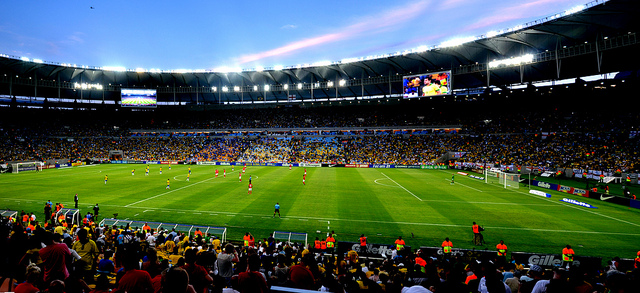
A large country of over 3 million square miles, the area contains three main regions. Manaus, one of the host cities, has high temperatures all throughout the year. A tropical climate, rainfall is normally heavy, but lucky for players and cheering fans, the weather tends to be a bit drier from June through September.
Brazil is a leading economy in South America, described as a “rapidly industrializing economy.” You might not know that is the world’s top producers of products including cars, paper, aircrafts, and even materials ranging from diamonds to tin. With coffee as it’s leading export, agriculture employs 16% of the population. A major farming nation, products also include bananas, coca, rice, sugarcane, and maize.
With the Amazon, the world’s second largest river, in its backyard, forestry is a major industry although the fear that destroying the rainforests can accelerate global warming is a real concern. On a positive environmental note, Brazil is the second highest producer of hydroelectricity in the world, accounting for 12.3% of total world production.
Politically, the nation sets an example for progress in gender equality, having elected its first female president, Dilma Rousseff of the Workers Party, in 2010. It’s government is a Federal Republic, having first declared itself an independent empire in 1822 after originally being claimed by Portugal in 1500. After periods of material rule from the 1930s, civilian rule was restored in 1985 with a new constitution adopted in 1988.
Oxford’s Atlas of the World – the only world atlas updated annually, guaranteeing that users will find the most current geographic information — is the most authoritative resource on the market. The milestone Twentieth Edition is full of crisp, clear cartography of urban areas and virtually uninhabited landscapes around the globe, maps of cities and regions at carefully selected scales that give a striking view of the Earth’s surface, and the most up-to-date census information. The acclaimed resource is not only the best-selling volume of its size and price, but also the benchmark by which all other atlases are measured.
Subscribe to the OUPblog via email or RSS.
Subscribe to only geography articles on the OUPblog via email or RSS.
Image credit: Photo by Digo_Souza>, CC BY 2.0 via Flickr
The post Countries of the World Cup: Brazil appeared first on OUPblog.
Blog: OUPblog (Login to Add to MyJacketFlap)
JacketFlap tags: football, Language, soccer, World Cup, British English, American English, *Featured, oxford dictionaries, oxfordwords blog, Dictionaries & Lexicography, Sports & Games, World Cup 2014 Brazil, offside rule, soccer vs football, football v football, kit vs uniform, Add a tag
By Fiona McPherson
The United States and Great Britain are two countries separated by a common language – a phrase commonly attributed to Shaw sometime in the 1940s, although apparently not to be found in any of his published works. Perhaps another way of looking at it is to say that they are two countries separated by a different ball – a sentiment that is particularly apt when football’s World Cup comes around.
Of course, it isn’t quite as simple as that. For years we’ve heard how football is becoming ever more popular in the USA. Major League Soccer’s profile continues to build, and indeed, the US even hosted the World Cup in 1994, and has twice won the FIFA Women’s World Cup. But despite this, football pales into insignificance compared with other big US sports. The National (American) Football League brought in 9 billion dollars in revenue in 2013, whereas Major League Soccer earned only about half a billion; even the National Hockey League earned over 3 billion. If you’re one of those Americans who hasn’t yet become a diehard fan, here’s a potted (and tongue) guide to bluffing your way into sounding knowledgeable about the beautiful game.

The first rule of football is…
…don’t call it soccer, certainly not within earshot of someone who thinks of it as ‘proper’ football. This is probably the most crucial element in giving the impression that you’ve been into this game for decades. Naturally this can be difficult if you are trying to differentiate between two different sports (in the UK it is easy – American football v football). Soccer, the word, comes from an abbreviation for Association (from Association Football, the ‘official’ name for the game) plus the addition of the suffix -er. This suffix (originally Rugby School slang, and then adopted by Oxford University), was appended to ‘shortened’ nouns, in order to form jocular words. Rugger is probably the most common example, but other examples included in the Oxford English Dictionary are brekker (for breakfast), bonner (for bonfire), and cupper (a series of intercollegiate matches played in competition for a cup).
Apart from its origins being decidedly British, you will find plenty of examples of soccer being used by British people over the decades. But in terms of the history of the language, it’s something of a 19th-century johnny-come-lately: by contrast, football has been used since the 1400s. In modern usage, in order to blend in with the diehard fans, it’s preferable to stick to football – and, when speaking to these fans, never, ever call it Association Football.
A quick reference to sound like a football native:
Match vs game
Match is used in relation to football, but game (used in American Football) is actually the older sense. Game, meaning a competitive activity governed by rules of play, is found in Old English – while match in a similar sense dates to the 16th century. (The word match is also found in Old English, with reference to spouses or people of equal standing.)
Pitch vs field
Pitch, meaning ‘the area of play in a field game’ and used in football, is quite a recent addition to English — currently first found in the late 19th century — and field (with a similar definition, used for American football) predates it by over 150 years. Yet fashions change, and you should refer to a football pitch if you want to be accepted by aficionados in Britain.
Boots vs cleats / shoes
The distinction between boots (used in football) and shoes (in American football) isn’t particularly noteworthy, but the use of cleats is more intriguing. It’s actually an example of synecdoche: the part is used to represent the whole. This becomes clear if you realize that cleats are the projections on the sole of a shoe, designed to prevent the wearer losing their footing (which are commonly called studs in British English).
Extra time vs overtime
As the name suggests, extra time is a further period of play in football, added on to a game if the scores are equal and the match must be decided (not to be confused with injury time, added to compensate for time lost dealing with injuries). Overtime describes the same event in North American games, drawing on the older sense of ‘time worked in addition to one’s normal working hours’. The first use of both terms is currently dated to the early 20th century, with extra time coming first.
To mark vs to guard vs to cover
Guarding in basketball, and marking in a variety of British games including football, means keeping close to an opponent in order to prevent them from getting or passing the ball. To add to the international confusion, in Australian Rules Football, marking a ball means catching it from a kick of at least ten metres and is to be celebrated – whereas, unless you’re the goalkeeper (or in the crowd), catching the ball at all in football is a handball and a foul. In American football, a defensive player will cover an offensive player.
Kit vs uniform
A uniform (worn for American sports) may sound more militaristic than a kit (worn in football), but the latter actually has fairly regimental (albeit more informal) origins – the sense comes from kit as the equipment of a solider (also known as articles of kit). This sense, in turn, relates to an earlier sense of kit as a container for carrying commodities – from the Dutch kitte, a wooden vessel made of hooped staves.
There’s no other way
In American Football, there are numerous ways to score. In football, there is only one. If the ball ends up in the back of the net (provided there has been no infringement of the rules), it’s a goal. Whether scored by a header, from the penalty spot, a volley, route one, scissor kick, after a glorious mazy run from one end of the pitch to the other, or even if it hits a defending player on the bottom/knee/shoulder and deflects past the goalkeeper into the goal, it’s just a goal, and only counts for one point.
0-0 can be exciting
It’s probably a bit of an urban myth that Americans bemoan the fact that it’s perfectly possible to sit through 90 minutes of football, and for the end result to be 0-0. Meaning that no one scored. While any self-respecting football fan will have witnessed the dourest of dour games which end up as a goalless draw, there are action-packed games which inexplicably end up goalless due to one or more goalies playing a blinder. You’ll just have to believe us on this. While you can’t immediately tell from the numbers written as symbols, that ‘0-0’ is nil-nil rather than zero-zero. A good way to expose your ignorance amongst football fans is to refer to a result being two-zero, as the 0 is always termed nil in football. Nil is a contraction of the Latin nihil, meaning ‘nothing’, and also to be found in the word nihilism (the belief that nothing in the world has a real existence).
And last, but not least, don’t worry too much about explaining the offside rule. Plenty of people can’t.
A version of this post first appeared on the OxfordWords blog.
Fiona McPherson is a Senior Editor with the Oxford English Dictionary.
Subscribe to the OUPblog via email or RSS.
Subscribe to only language articles on the OUPblog via email or RSS.
Image: Soccer Balls Net 7-22-09 1 by Steven Depolo. CC BY 2.0 via Flickr.
The post The first rule of football is… don’t call it soccer appeared first on OUPblog.
Blog: The Children's Book Review (Login to Add to MyJacketFlap)
JacketFlap tags: Football, Sports, Author Interviews, Soccer, featured, Author Showcase, World Cup, Cultural Wisdom, eBooks & Apps, Geeta Raj, Add a tag
Geeta Raj brings an 11-year career in international development and humanitarian assistance to The Global Sleepover series, including over 8 years as a Senior Program Analyst with the United States Agency for International Development (USAID).
Add a CommentBlog: The Children's Book Review (Login to Add to MyJacketFlap)
JacketFlap tags: Football, Friendship, Sports, Soccer, Brazil, Author Showcase, sportsmanship, South America, Cultural Wisdom, eBooks & Apps, Culture Around The World, Introduction To Culture, Geeta Raj, Alison Nicola, Add a tag
A Soccer (or Football) Sleepover in Brazil is part of the Global Sleepover series of interactive storybooks that aim to introduce young readers to different countries and cultures.
Add a CommentBlog: La Bloga (Login to Add to MyJacketFlap)
JacketFlap tags: poetry, soccer, Floricanto Movement, fútbol, Add a tag
“¿Ves?"
Michael Sedano
"¿Ves?" was an expression my grandmother favored, maybe the entire clan of Villa women favored, to sum up disappointment and what to do about it.
In a single syllable gramma summed up her knowledge that when something was too-good-to-be-true, don’t be surprised to receive a kick in the ass for your trouble.
That’s not fatalistic, it’s flexible pragmatism. “¿Ves?” she’d say with a wave of her hand like waving off a fly. She meant take your licks and move on, there are lots of flies.
I thought of my gramma--and my dad’s stoicism--when I learned the score of the Mexico-Netherlands World Cup game. My dad would take a kitchen chair into the teevee room. His ma would recline on her plastic clad sofa, the San Bernardino Sun on her lap. I'd sit on the floor moaning and screaming at the screen. Mother and son would take in the end of the game calmly, watching Netherlands refuse extreme unction and kick Mexico’s ass for a 2-1 win.
My gramma would look at my dad, my dad would look at my agony, and together they’d explain sports to me. “¿Ves?”
For gramma it was a double "¿ves?" Because she was an indian, born in Pomona, rooting for Mexico would have been a time waster. Then to have them lose after all that? "¿Ves?"
Or, as Roseanne Rossannadanna would later proclaim, “it’s always something,” for Mexico. Our team remains in contention, the US team, that is. It's always something.
Ditto La Bloga.
For La Bloga-Tuesday, the something is cool; a pair of On-line Floricantos. In La Bloga’s continuing fútbol floricanto series, today’s work from Ryan Nance reflects the conjunction of poetry and technology, an ekphrasis of recent broadcasts.
Capping off today’s column, Odilia Galván Rodríguez and her co-moderators of the Facebook group Poets Responding to SB 1070: Poetry of Resistance, nominate six powerful poems from five accomplished poets for our featured monthly On-line Floricanto.
Be sure to check out each poet’s bio at the bottom of the column. While you’re there, look for the Comment icon and share your soccer predictions or miseries, and your responses to our five featured poets.
Fútbol Floricanto Featuring Ryan Nance
XI: Stars
by rtsnance (Ryan Scott Nance)
You, Gyan, see the ball with all of your quantum selves.
You, Villa, meet the motion with mimic motion.
You, Sturridge, build a high carriage against the pale blue heavens.
You, Junior, don’t wait for anything but start your own.
You, Suarez, make a current of hot intent wash through the high canyon of others’ hopes.
You, Dzeko, stack tight in cargo of the unspoken grandeur.
You, Hazard, aren’t fooling many people into thinking you’re earthborn.
You, Robben, everyone knows exactly what you are going to do, but can’t stop it.
You, Messi, mustn’t stop.
You, Klose, will answer our questions we stored up quietly in long train rides and heavy traffic.
You, Drogba, burn gallons of joy on the bonfire of our young hearts.
XI: España v. Nederlands 1-5
by rtsnance (Ryan Scott Nance)
Vast enough to acquire height
The Dutch built their Spanish palisades
With fine optical ground glass
In their cuticles and eyebrows
Repeated motions made motionless
with more intent,
A Blind pass met in swift desirous
Touching. Van Persie lifted off the ground
with pure attention turned into a supplicant’s prayer
With a thousand days of bright effort
We arrange the union of a patch of sun with our radiance
XI: Portugal v. USA Draw 2-2
by rtsnance (Ryan Scott Nance)
First, magnificent that play exists
away from the slow desert of fear
Then, magnificent that the mind learns
in joy the way
cause can lead to cause
After then, the magnificence of light touch,
mastery and talent of playing well
And only then
the magnificence
of win secured
and loss endured.
Ryan Nance is a creative force engaged in diverse activities and venues, from street corners to the technosphere. He currently leads Five Things I Learned Today.
The Fútbol Floricanto series is curated by Yago S. Cura.
Late-breaking News
Latino Literacy Now Announces The International Latino Book Awards
Click here for a comprehensive listing of nominees and awards.
On-line Floricanto for Mid-Year 2014
Elizabeth Marino, Elena Díaz Bjorkquist, Edward A. Vidaurre, Sonia Gutiérrez, Tara Evonne Trudell
ASYLUM
By Elizabeth Marino
Another sleepless night,
and bad television
is still not calming.
My mind has drifted back
to Charlie and his blue
plastic boat, shared at St. Vincent
Orphan Asylum in Chicago.
His hair was wondrously full
and he made my belly laugh
as we waited and drifted.
The dormitory cribs were
far different from the blue vinyl
mats on the concrete floor
of the women’s wing of the
shelter. Each places of shelter
and transit, an end time
at any time.
And I see these pictures
of the children stacked up like
cord wood, relatively safe
compared to the Pakistani children
stacked up like cord wood
in ox carts, after a drone attack.
It is difficult to shut off
these images on the screen
of the mind’s eye. The browser sticks,
and keeps refreshing itself.
In the morning
I must go out the door
and decide to be alive.
Speak Mexican for Us
By Elena Díaz Bjorkquist
The gringuitas taunt me,
knowing I’d be punished
for speaking my language
on the playground.
Speak Mexican for us.
They don’t understand,
Don’t listen to my explanation:
Spanish, not Mexican.
Spanish is a language,
Mexican is a nationality.
English is a language,
English is a nationality.
Español, the language
of familia y casa,
Español, the language
of comfort and love.
English is cold,
difficult to learn,
Spanish rolls smooth
off my tongue.
Spanish at school
gets me punished.
English at home
gets me scolded.
I learn to speak both,
Spanish at home,
English at school.
Switch from one
to the other, know
when to use either.
Los Desaparecidos
By Edward A. Vidaurre
Everyone has the gift of invisibility,
even the borderwall goes unnoticed in June after a
month that drains us of life. The scent of knives
on a hot summer is the only constant
amongst the news of frontera tragedies and a poetry
reading in a stick-to-your-skin humid bar in a small South Texas town.
We all have the gift of going missing,
like the breath of a collapsing lung,
like a whisper from behind, a shooting star.
Or do we just hide reading a newspaper upside-down
when the new Sheriff arrives?
Puede ser que tambien los periodicos se convierten
lanchas que se lanzan en un rio olvidado, en aguas
color a sangre de tantos que casi por las yemas de los dedos
tocaban tierra Estadounidense.
The missing,
they recite Howl across the Rio Grande
but not the Ginsberg lament for his brethren
but the howls of suffering souls crammed in stash houses
across our children's playgrounds, those left
for dead in sweltering sardine packed vessels,
-those left alive to remember hell is real.
Los desaparecidos,
quieren ser encontrados
aun decapacitados y sin lenguas.
Siguen gritando porque el silencio es fuerte en sufrimiento.
We will keep them alive and find them!
Through art, poetry, music, stories that scare the night,
and lullabies that make our children sleep tight.
Cuando los cantos se vuelven agua
el olor de cuchillos en el aire
bailan con la bungavilla trepadora
descendiendose seis pies bajo la tierra sin nombre
-solo una alabanza que fluje entre la tierra agrietada
El Lugar de los Alebrijes
Por Sonia Gutiérrez
para Sergio Vásquez y Rogelio Casas
Aquí bailaron los alebrijes:
algunos grandes, algunos pequeños,
algún pedorro, y hasta un maldito se coló.
Aquí gozaron los alebrijes:
como pelotas cometas sus colores
brincaron por todo alrededor.
Aquí anduvieron los alebrijes:
pasearon todos juntos dejando huellas
para llegar a Alebrijelandia.
Aquí los amigos de los alebrijes
sonríen al verlos caminar
y jugar todos los días.
Aquí en Alebrijelandia
ningún color es mejor que otro,
y todos los alebrijes irradian por igual.
The Place of the Alebrijes
By Sonia Gutiérrez
to Sergio Vásquez and Rogelio Casas
The alebrijes danced here:
some big, some small, a gassy one,
and even a wicked one tagged along.
The alebrijes rejoiced here:
like comet balls their colors
jumped all around.
The alebrijes were here:
they travelled together leaving footprints
to arrive to Alebrijelandia.
Here the friends of the alebrijes
smile to see so them all walk
and play every day.
Here in Alebrijelandia
no color is better than another,
and the alebrijes radiate all the same.
Far Away
by Tara Evonne Trudell
crossing
the mojave desert
I dreamed
my people
moving through
heat waves
and hunger pains
mothers fathers
children
willing life
dying to cross
a line
drawn in sand
drones hovering in air
dangerous spy tactics
always monitoring
the calculation
in military moves
real life
hunger war games
forcing survival
the extreme NAFTA
and CIA manipulation
taking land
and killing people
corrupt government
holding meetings
with drug lords
in slick suits
making up
hard core
statistics
to act on
with militarized force
feeding masses
misled lies
laced with hate
turning one side
against
the other
with neither side
existing at all
every day life
selling American
dreaming material
sold by elite thugs
and prison profiteers
in slick suits
making up laws
in corrupt politics
the buddying up
of corporations
filling systems
making a business
out of brown people
handcuffing butterflies
taking away
the freedom
to migrate
caught by ICE
profiling parents
the leaving
left alone
in terrified children
separating families
creating impossible reuniting
the written word
in small print
USA court documents
the taking away
of Mexico
in parental rights
when accusations fly
calling names out
illegal!
alien!
immigrant!
USA labels
of being brown
in a country
too far
to care
when not close
to home
American comfort
family circles tight
the choice
to be unaware
what’s really going down
south of the border
the human race
running away
when excluding
their own
mechanical hummingbird
droning on
the keeping
of government control
gleaming
in big brother eye
the elite
banking on profits
of brown people
crossing
to survive.
Elizabeth Marino is honored to return to LaBloga. Her chapbook, Ceremonies, was released by dancing girl press in 2014. This collection was based on work begun at a residency at Los Dos Brujas Writers Workshops, on the Ghost Ranch, near Albuquerque NM, where she studied with Juan Felipe Herrera. She received a conference scholarship and a CAAP grant.
Her prior chapbook, Debris: Poems and Memoir, is still available through Puddin'head press. She is glad to look back on 21 years in the university teaching profession.
She is grateful for the folks in her life who lift her up, make her laugh, and keep things lively in Chicago.
Elena Díaz Bjorkquist is a writer and an artist from Tucson, Arizona. She writes about Morenci
 where she was born. Elena is the author of two books, Suffer Smoke and Water from the Moon and co-editor of Sowing the Seeds, una cosecha de recuerdos and Our Spirit, Our Reality; our life experiences in stories and poems, anthologies written in the writers collective Sowing the Seeds.
where she was born. Elena is the author of two books, Suffer Smoke and Water from the Moon and co-editor of Sowing the Seeds, una cosecha de recuerdos and Our Spirit, Our Reality; our life experiences in stories and poems, anthologies written in the writers collective Sowing the Seeds.As an Arizona Humanities Council (AHC) Scholar, Elena has performed as Teresa Urrea in a Chautauqua living history presentation and done presentations about Morenci for thirteen years.
In 2012 she received the Arizona Commission on the Arts Bill Desmond Writing Award for excelling nonfiction writing and the Arizona Humanities Council Dan Schilling Public Humanities Scholar Award in recognition of her work in the humanities.
Elena was nominated for Tucson Poet Laureate in 2012 and was one of the moderators of the Facebook page Poets Responding to SB 1070. Her poems have been published in La Bloga, The Gospel According to Poetry, and The Más Tequilla Review. Elena is also a ceramic artist, specializing in masks and sculpture. She teaches a weekly clay class out of her studio, Casita TzinTzunTzan.
Edward Vidaurre has been been published in several anthologies and literary journals among them La Bloga, Bordersenses, Interstice, La Noria Literary Journal, Boundless Anthology of the Valley International Poetry Festival 2011-2013.
He’s had two books published -I Took My Barrio On A Road Trip (Slough Press 2013) and Insomnia (El Zarape Press 2014.
He also co-edited TWENTY-Poems in Memoriam and Boundless 2014 the Anthology of the Rio Grande Valley International Poetry Festival.
Sonia Gutiérrez is a poet professor who promotes social justice and human dignity. She teaches English Composition and Critical Thinking and Writing at Palomar College.
La Bloga is home to her Poets Responding SB 1070 poems, including “Best Poems 2011” and “Best Poems 2012.”
Her bilingual poetry collection, Spider Woman/La Mujer Araña (Olmeca Press, 2013), is her debut publication.
Kissing Dreams from a Distance, a novel written in the Tomás Rivera and Sandra Cisneros literary tradition, is seeking publication. She is at work on Legacy/Herencia, a poetry collection. To learn more about Sonia, visit SoniaGutierrez.com.
Tara Evonne Trudell studied film, audio, and photography while in college at New Mexico Highlands University. She is a recent graduate with her BFA in Media Arts.
As a poet and mother of four children, raising them to understand her purpose to represent humanity, compassion, and action in all her work is her dedication to raising them with an awareness of their own growing identities.
Incorporating poetry she addresses the many troubling issues that are ongoing in society and hopes that her works will create an emotional impact that inspires others to act.
Golazos or Go Home: Fútbol Floricanto Features Ryan Nance
Blog: Perpetually Adolescent (Login to Add to MyJacketFlap)
JacketFlap tags: Book Reviews - Fiction, david peace, brian clough, derby county, leeds united, red or dead, the damned utd, Football, Book, book review, soccer, Add a tag
 I have tried and failed at reading David Peace before. I’ve have always wanted to get into his books in particular The Red Riding Quartet (which I cheated and watched the films instead, which were superb). For some reason I have never been able to get into the rhythm of his writing and with a writer like David Peace if you don’t have the rhythm you are lost.
I have tried and failed at reading David Peace before. I’ve have always wanted to get into his books in particular The Red Riding Quartet (which I cheated and watched the films instead, which were superb). For some reason I have never been able to get into the rhythm of his writing and with a writer like David Peace if you don’t have the rhythm you are lost.
A couple of readers, who I really respect their taste, have been going nuts for David Peace’s Red Or Dead and with it being World Cup time I decided I would check out one of David Peace’s football novels.
I have been attempting to get into poetry this year and one of the ways I have found that has made poetry most accessible to me as a reader has been via audio. A poem read aloud brings the words to life which sadly I am unable to do reading them. So when I spotted an audio version of The Damned United I jumped at the opportunity to listen to it. (The fact it was read by John Simm from Life On Mars was icing on the cake.)
 From the opening lines I was entranced. David Peace is utterly hypnotic. The repetition, the short, sharp visceral use of language had me utterly enthralled. It was like a chant that just swept me up into the turmoil that was the life of football manager Brian Clough.
From the opening lines I was entranced. David Peace is utterly hypnotic. The repetition, the short, sharp visceral use of language had me utterly enthralled. It was like a chant that just swept me up into the turmoil that was the life of football manager Brian Clough.
Brian Clough became manager of Leeds United in 1974 and only lasted 44 days in the job. Peace tells the story of his tumultuous 44 days in charge interspersed with flashback to Clough’s early days as a football manager and the success (and havoc) he wrought up until landing the Leeds United job.
This was one of those absolutely amazing book experiences. David Peace’s novels are often described as streams of consciousness but after listening to The Damned United I would describe his work more as verse novels. The imagery he conjurors, the sounds and atmosphere he recreates through words is my definition of poetry. I’m going to listen to as many of his novels on audio now that I can find and wish to the book gods that someone records an audio version of Red Or Dead (or maybe have a crack at it myself to see if I now have David Peace’s rhythm).
Add a CommentBlog: (Login to Add to MyJacketFlap)
JacketFlap tags: Sports, humor, funny, Southern, soccer, American, USA, world cup, United States, It Made Me Laugh, flopping, Add a tag
Portsong will never host a World Cup. Our only stadium is open air, mowed by livestock, and has no bleachers. It would take too long to mark Hargit’s Field and we simply aren’t prepared for the crush of humanity that such a tournament would bring. I’m not one of those Americans who hates soccer. I really have no problem with it and would be okay if it took hold. With all of the kids playing and international flavor in the U.S., it really is amazing that professional soccer can’t seem to get off the ground.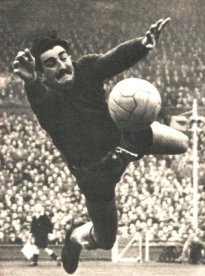
So what’s the problem? Why does the average football or baseball fan have such a disregard for the sport? Some say it is too slow. Okay, I get that – we like things fast and instant. But nothing is slower than baseball. When you have the league itself changing rules to speed up the game, you know you are in the paint-drying business.
Last week, I watched a little bit of Ghana vs. Germany and think I stumbled on a few things.
First, what is the deal with the goaltender wearing a different uniform? What makes that guy special – either you are on the team or you’re not! If they do that so the ref can tell who gets to touch the ball with their hands, they need new refs. Can these guys not identify one guy quickly enough to call a handball? They usually wear Mickey Mouse gloves anyway, which kinda stand out. No, the refs aren’t the problem. There is clearly some socialistic motive behind the goalie’s garb.
Second, the flopping. It has become a big topic of conversation around here. I have never seen grown, athletic men act like such drama queens in all my days. It is crazy how when their shin gets touched, their arms fly up wildly before they flop, drop, and roll. Have you further noticed that each victim assumes the same paralyzed position holding their knee until they realize the call didn’t go their way? Then instantly, they pop back up and resume play at full speed as if a good, old-fashion faith healer has smacked them on the forehead and made them well. Hockey and Basketball have instituted rules to punish such behavior. Since they have yellow and red, maybe soccer could give a pink card for flopping.
Lastly, it’s the low scoring and the fact that a game can end in a tie. Nobody likes that. Ties are like whacking off the last five minutes of a movie and saying The End. Somebody has to win!
 I’ve come to the rescue with a simple idea that kills all three objections. Here is what soccer should do. If a player flops, he has to stay face-down on the ground motionless like a kid playing freeze tag until the guy with the big gloves comes over and tags him. Think about that! Empty nets while the goalies run all over the field bringing players back to life means higher scores. Motionless players make for built-in impediments – therefore, more contact – which leads to additional flopping and more speed bumps. Soccer has just become a high-scoring, contact sport, with frozen men lying face down all over the field! Genius.
I’ve come to the rescue with a simple idea that kills all three objections. Here is what soccer should do. If a player flops, he has to stay face-down on the ground motionless like a kid playing freeze tag until the guy with the big gloves comes over and tags him. Think about that! Empty nets while the goalies run all over the field bringing players back to life means higher scores. Motionless players make for built-in impediments – therefore, more contact – which leads to additional flopping and more speed bumps. Soccer has just become a high-scoring, contact sport, with frozen men lying face down all over the field! Genius.
And if anyone shows up in a different uniform, they have to lay down in the center of the field and balance the ball on their lips as a tee for kick-off. That’ll teach him teamwork.
If I can get to someone with this idea, we’ll have a thirty team mega-league in the United States by 2016.
Photo credit: Leon Rugilo
Filed under: It Made Me Laugh
Blog: La Bloga (Login to Add to MyJacketFlap)
JacketFlap tags: football, poetry, soccer, guest writers, Floricanto Movement, futbol, oral performance, chicano photography, Add a tag
By Kathy Cano-Murillo
Eloquent melodrama. That is how I describe The Book of Unknown Americans. At first glance, it seems like another novel about the immigrant experience. While that’s the obvious premise, it takes a backseat to the real meat of the book: young love, family drama and friendships.
The heart of the story is the incandescent Maribel, the 15-year-old daughter of Arturo and Alma Rivera. It’s an injury of hers that brings her family to the United States during the first half of Obama’s presidency. Her overprotective mother, eager to “fix” her, learns of a special needs school in Delaware that can help. Arturo reluctantly agrees and they follow precise and tedious protocol to enter the United States legally. “Because we are not like the others,” Alma says, pridefully.
They arrive to find that their American dream is more of a nightmare. Everything from the living conditions to the food and weather is a downgrade compared to what they had and loved in Mexico. Their saving grace? The friendships they form with their new (also immigrant) neighbors in the rundown apartment complex. Throughout the book, each of their stories are revealed. They are Mexican, Panamanian, Puerto Rican, Venezuelan just to name a few. Their reasons for moving here are just as varied as their charm. While these passages don’t have a direct influence on Maribel’s story, they do add flavor to the book’s message of giving us insight to these “unknown Americans.” Author Henríquez presents them with a string of small moments that add up to big, unforgettable personalities.
The Rivera family makes progress in their new home and their destiny unfolds. On one end is a racist bully who taunts Maribel. And at the other end is the boy, Mayor, who falls in love with her. The two strike up a quiet, tender friendship that eventually blossoms into first love. But eventually all of the factors collide due to misunderstandings, lies, guilt, and secrets. The drama that had slowly unfolded in previous chapters, explodes all at one time... and subsides just as fast. This is my only complaint with The Book of Unknown Americans. Perhaps its the romantic in me, I wish the post-climax ending had a little more room to settle and exhale. But as we all know, real life doesn’t always work out the way we want.
I honestly didn’t expect to love this book. I expected a heavy, serious tale of struggle and I braced myself for some somber reading. I was pleasantly surprised to find the opposite. It is well-written and is bubbling with emotion. It’s a universal story about families working together for the common goal of creating a better life. Supporting one another when the bottom falls out. It captured me within the first few pages, and I put my life on hold for a weekend while I devoured each chapter!
Henríquez did a brilliant job in sharing a glance inside the lives of those normally overlooked and even ignored. I do hope for a sequel! You know you’ve finished a great book when you put it on the shelf and sigh because you’re wondering about what will become of these characters. That’s what this book did for me. It reminded me that every human being has a story, and every one deserves to be acknowledged.
Crristina Henríquez is also the author of The World in Half and Come Together, Fall Apart.
She has launched The Unknown Americans Project on Tumblr. Visit the site to to read stories or add your own! http://unknownamericans.tumblr.com/ See more about Christina Henríquez at her site, http://www.cristinahenriquez.com/
La Bloga welcomes Kathy Cano-Murillo as our guest reviewer. Kathy first visited La Bloga in Daniel Olivas' Spotlight On back in 2010.
She is the author of the novels Waking Up in the Land of Glitter and Miss Scarlet’s School of Patternless Sewing.
You can see more about her at her site, CraftyChica.com.
La Bloga On-line Floricanto: Yago S. Cura
Only the score is even at 91:01:16. Iran outplays, out-thinks a humbled Argentina. Iran’s impenetrable sea of red rejects any challenge to the tie they’ve won today. Univision’s announcers declare Iran the better team, should have won the game. Then a minute and seventeen seconds into stoppage time, Messi gets the ball.
ODE TO LEONEL MESSI
By Yago S. Cura
Oh Messi, the words don’t like to heel;
they rear up like coked-up Clydesdales
to stamp the tales of your devious feet.
It’s just that you’re a meñique Loki—
an algebra prodigy with filthy squaw hair,
a mischief wick, Pre-Cambrian fireworks
display, you’re like nighttime diving from
the Concussion Quarry. Messi, your tech is
so untextbook—I want to stun each cell
of the reel where your feet call the shots.
Faster than fast, surpassing speeding
catalysts of exponential acceleration:
Messi you are like ten ton cubes of pins,
toothpicks, and shattered plate glass
by Tara Donovan.
We expect your currency in malicious slide tackles,
oodles of shin splits, and cleats in muscle’s mignon.
Maybe the growth hormone Barcelona bought for you
held the genetic credit of petite assassin panthers?
Or, the supersonic locura that drives
greyhounds bonkers and makes them chase
lures in fashionable muzzles and pennies.
Read more of Yago S. Cura's fútbol odes in last week's La Bloga-Jueves Thursday, Lydia Gil's Libros sobre fútbol y Fútbol Poems.
Blog: Perogies & Gyoza (Login to Add to MyJacketFlap)
JacketFlap tags: poetry, soccer, ages 3+, Add a tag
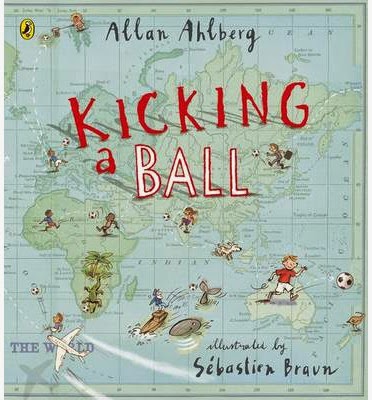 Kicking a Ball
Kicking a Ball
Written by: Allan Ahlberg
Illustrated by: Sebasten Braun
Published by: Puffin Books
Published on: May 1, 2014
Ages: 3+
The World Cup starts today! Despite the controversies, we are so excited in our house! Soccer is our game and we are all rooting for Japan and a variety of secondary countries. May the best team win!
The bloated capitalism of the FIFA organization and the very important concerns of the Brazilian peoples haven't been enough to put us off. The reason is, like this book, very simple. Two teams and a ball are just very exciting.
That joy is captured perfectly in Ahlberg's verse. The wee boy in this book just loves the time he spends with his inanimate object, the way he can manipulate it, and the joy it brings.
Props certainly need to be given to the internationalness of this book. Besides the delightful map illustrations, Ahlberg brings mention to many of the countries in which soccer is played, from Nepal to Bengal. It's lovely to see a book for kids about this game that doesn't focus on any one country.
Pick this up for the kicking or poetry lover in your life.
Blog: Whateverings (Login to Add to MyJacketFlap)
JacketFlap tags: busy scene, Soccer in New Zealand, children, Links, kids, cartoon, comic, General Illustration, Samples, soccer, paula j. becker, paula becker, game, ball, Cartoons & Comics, tournament, chirp magazine, Owlkids, Add a tag
Here’s something new that came in last week. I did a spread for Chirp magazine’s June 2014 issue, entitled, “Soccer In New Zealand”. It depicts a youth soccer tournament held in New Zealand called “Jambo”. I had a lot of fun putting this together, from depicting flags and soccer players from various countries. It has various puzzles to play, including finding things in the picture, as well as spotting balls that are NOT used in soccer. Off to the far bottom right are a few little informational facts about New Zealand. After drawing this, I hope to someday visit the country myself!
Blog: Illustration for Kids Blog (Login to Add to MyJacketFlap)
JacketFlap tags: busy scene, Soccer in New Zealand, children, Illustration, kids, cartoon, comic, soccer, paula j. becker, paula becker, game, ball, tournament, chirp magazine, owlkids, Add a tag
Here's something new that came in last week. I did a spread for Chirp magazine's June 2014 issue, entitled, "Soccer In New Zealand". It depicts a youth soccer tournament held in New Zealand called "Jambo". I had a lot of fun putting this together, from depicting flags and soccer players from various countries. It has various puzzles to play, including finding things in the picture, as well as spotting balls that are NOT used in soccer. Off to the far bottom right are a few little informational facts about New Zealand. After drawing this, I hope to someday visit the country myself!
Blog: OUPblog (Login to Add to MyJacketFlap)
JacketFlap tags: football, History, pelé, soccer, Brazil, argentina, Latin America, World Cup, odnb, FIFA, fifa world cup, *Featured, oxford dictionary of national biography, paulo, futebol, Online products, Sports & Games, alexander hutton, charles miller, latin american history, matthew brown, online update, museu, santos, Add a tag
By Matthew Brown
Charles Miller claimed to have brought the first footballs to Brazil, stepping off the boat in the port of Santos with a serious expression, his boots, balls and a copy of the FA regulations, ready to change the course of Brazilian history. There are no documents to record the event, only Miller’s own account of a conversation, in which historians have picked numerous holes. There are no images either, which is why to mark the impending Miller-mania surrounding English participation in the World Cup in Brazil, I recreated the scene on the docks at Santos, today South America’s biggest and busiest port. (Thanks to my colleague Gloria Lanci for capturing the solemnity of the occasion).
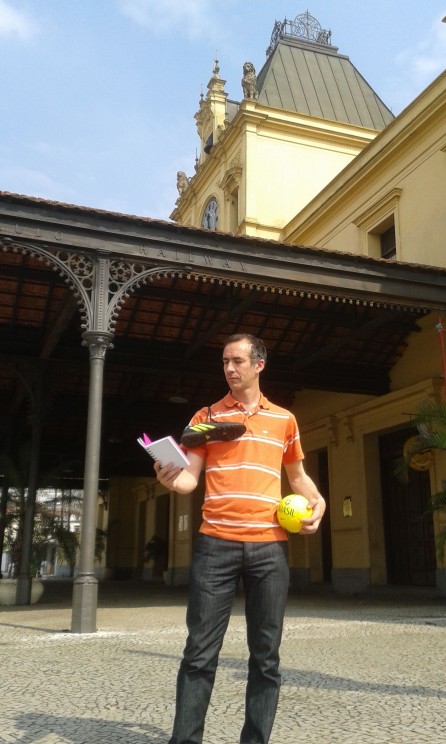
Opposite the passenger terminal, where the photo was taken, an old building is being converted into the Museu do Pelé, to house the history of Santos Futebol Clube’s most famous player, heralded by many as the greatest footballer of the twentieth century – though it will not be ready to open in time for the World Cup. The stories of Miller and Pelé are often linked to illustrate the development of football in Brazil. Gilberto Freyre, the Brazilian sociologist and historian, was one of the first:
‘[It was] Englishmen who introduced into Brazil the principal sporting and recreational replacements for our colonial jousting tournaments: horse-racing, tennis, cycling and football itself, which here became fully naturalised as a game not for fair-haired European expatriates in the tropics but for local people: […] people increasingly of varying shades of brown; with de-Anglicisation culminating in the admirable Pelé, after shining with Leônidas.
[Football] has become a veritable Afro-Brazilian dance, with footwork never imagined by its inventors. Has it stopped being British? Not in the slightest. Association football cannot be separated from its British origins to be considered a Brazilian or Afro-Brazilian invention. What it is, in its current, triumphant expression, is an Anglo-Afro-Brazilian game’. (Gilberto Freyre, The British in Brazil, London, 2011, first published in Portuguese in 1954, p.13.)

Charles Miller was born in São Paulo to a Scottish father and a Brazilian mother whose surname, Fox, reveals her English origins. During his lifetime the population of São Paulo ballooned from around 100,000 in 1874 to well over 2 million in 1953. Most of those new citizens were migrants and their children. São Paulo and Brazil were remaking themselves. Football and music became central ways for Brazilians to express a new inclusive identity after the abolition of slavery (1888) and the establishment of a new republic to replace monarchy (1889).
The sense of Brazilian football leaving its British origins behind as it headed for global domination on and off the pitch, as suggested by Freyre, is why there is no statue or plaque to Miller in the city, not even in the Praça Charles Miller, the square at the front of the Pacembu stadium which houses the Museu do Futebol. Though he was born and died in Brazil, and lived almost his entire life in Brazil (the exception was his schooling in Hampshire, England) Miller’s legend is that of an immigrant, stepping off the ship in Santos to begin a new life. His ambiguous identity, floating between Scottish, British and Brazilian might explain why his simple grave in the Cemeterio de Protestantes in São Paulo is so modest (a cross marked C.W.M, which the director of the cemetery asked me not to photograph, “out of respect”). The Museu Charles Miller, housed in the exclusive Clube Athletico Sao Paulo, and available to visit on appointment, contains old photographs, trophies and a letter from Pelé.
In Brazilian football historiography, “Charles Miller” has become a cipher for the elite, foreign origins of a game which was were subsequently embraced by the Brazilian povo (the people). Something similar is true of Alexander Watson Hutton for Argentina, a more conventional immigrant figure, a Scot who arrived in Buenos Aires as an adult and set about institutionalising and regulating the game of football through schools, teams and leagues. At the II Simpósio Internacional de Estudos Sobre Futebol that I attended in São Paulo last week, Miller was referenced by many of the researchers as a scene-setter to establish their credentials, his name alone enough to conjure images of moustachioed elite white men in blazers tapping a ball around.
At the Simposio, discussing museums and football with Richard McBrearty, director of the Scottish Football Museum, and Daniela Alfonsi, Diretora de Conteudo do Museu de Futebol, Kevin Moore, director of the [English] National Football Museum, noted that Miller’s story is ‘the very epitome of the multinational, global nature of the origins of football’. But they also pointed out that the origins of football were anything but a one man show. Hundreds of people played football in Brazil at the end of the nineteenth century, and historian José Moraes dos Santos Neto has argued pretty convincingly that football was being played in several places in Brazil before Miller’s much-heralded return from England. The ways in which Brazilians took on the game and made it their own is the subject of many wonderful books, including Alex Bellos’ Futebol: The Brazilian Way of Life and David Goldblatt’s Futebol Nation: A Footballing History of Brazil. The importance of Charles Miller lies not in any individual greatness but in the way that his story has captured something of the essence of being Brazilian, and of the ways in which football was adopted, regulated, internationalised and embraced around the world.
Dr Matthew Brown is a reader in Latin American Studies at the University of Bristol, and specialises in the history of sports in South America. In particular, the history of the very first football teams to be established. He contributed the biographies of Charles Miller and Alexander Hutton to Oxford Dictionary of National Biography’s May update.
The Oxford Dictionary of National Biography online is freely available via public libraries across the UK. Libraries offer ‘remote access’ allowing members to log-on to the complete dictionary, for free, from home (or any other computer) twenty-four hours a day. In addition to 58,800 life stories, the ODNB offers a free, twice monthly biography podcast with over 190 life stories now available. You can also sign up for Life of the Day, a topical biography delivered to your inbox, or follow @ODNB on Twitter for people in the news.
Subscribe to the OUPblog via email or RSS.
Subscribe to only history articles on the OUPblog via email or RSS.
Image credits: (1) Matthew Brown arriving in Brazil, impersonating Charles Miller, © Gloria Lanci. (2) Site of the forthcoming Museu do Pelé, © Matthew Brown.
The post Football arrives in Brazil appeared first on OUPblog.
Blog: OUPblog (Login to Add to MyJacketFlap)
JacketFlap tags: 2010 World Cup, hosting, *Featured, oxford journals, blanco, leagues, football, African economies, Journal of African Economies, tourism in africa, iscar, peeters, szymanski, matheson, Economics, soccer, south africa, tourism, World Cup, Add a tag
By Thomas Peeters, Victor Matheson, and Stefan Szymanski
The World Cup, the Olympics and other mega sporting events give cities and countries the opportunity to be in the world’s spotlight for several weeks, and the competition among them to host these events can be as fierce as the competition among the athletes themselves. Bids that had traditionally gone to wealthier countries have recently become a prize to be won by prospective hosts in the developing world. South Africa became the first African host of the FIFA World Cup in 2010, and this summer, Brazil is hosting the first South American World Cup in 35 years. Russia recently completed its first Winter Olympics in Sochi and will return to the international stage in 2018 when the World Cup heads to Eastern Europe for the first time.
On the surface, this might appear to be a leveling of the playing field, allowing developing countries to finally share in the riches that these events bring to their hosts. A closer look, however, shows that hosting these events is an enormously expensive and risky undertaking that is unlikely to pay off from a purely economic standpoint.
Because of the extensive infrastructure required to host the World Cup or the Summer or Winter Olympics, the cost of hosting these events can run into the tens of billions of dollars, especially for developing countries with limited sports and tourism infrastructure already in place. Cost estimates are often unreliable, but it is said that Brazil is spending a combined $30 billion to host the Olympics and World Cup, Beijing spent $40 billion on the 2008 summer games, and Russia set an all-time record with a $51 billion price tag on the Sochi games. Russia’s record is not likely to stand for long, however, as Qatar looks poised to spend upwards of $200 billion bringing the World Cup to the Middle East in 2022.
Why do countries throw their hat into the rings to host these events? Politicians typically claim that hosting will generate a financial windfall For example, the 2010 World Cup in South Africa, the focus of our paper, cost the country $3.9 billion including at least $1.3 billion in stadium construction costs. The consulting firm Grant Thornton initially predicted 483,000 international visitors would come to the country for the event and that it would generate “a gross economic impact of $12 billion to the country’s economy”. The firm later revised its figures downward, to 373,000 international visitors and lowered the estimated economic impact to $7.5 billion. Following the event, a FIFA report stated that “309,554 foreign tourists arrived in South Africa for the primary purpose of attending the 2010 FIFA World Cup.”Our analysis of monthly tourist arrivals into South Africa during the months of the event, however, suggests that the tourist arrivals were even lower than this. The expected crowds and congestion associated with the tournament reduced the number of non-sports fans traveling to the country by over 100,000 leaving the net increase in tourists to the country during the World Cup at just 220,000 visitors. This figure is less than half that of Grant Thornton’s early projections and a full third below even the lowest visitor estimates provided after the tournament. We estimate that the cost to the nation per World Cup visitor lies in the range $4,700 to $13,000.
Our results provide a cautionary tale for cities and countries bidding for mega-events. The anticipated crowds may not materialize, and the economic gains from the sports fans who do come to watch the games need to be weighed against the economic losses associated from other potential travelers who avoid the region during the event.
Thomas Peeters is a PhD-fellow of the Flanders Research Foundation at the University of Antwerp. His main research interests are industrial organization and labor issues related to professional sports leagues. His work has been published in journals such as Economic Policy, the International Journal of Industrial Organization and the Journal of African Economies. Victor Matheson is a professor of economics at the College of the Holy Cross in Worcester, Massachusetts, USA. He is the author of numerous studies concerning the economic impact of major sporting events on host countries and is a member of the executive board of the North American Association of Sports Economists. Stefan Szymanski is the Stephen J. Galetti Professor of Sport Management at the University of Michigan. His research in the economics of sports includes work on the relationship between performance and spending in professional football leagues, the theory of contests applied to sports, the application of sports law to sports organizations, financing of professional leagues and insolvency, the costs and benefits of hosting major sporting events. They are the authors of the paper ‘Tourism and the 2010 World Cup: Lessons for developing countries’, which is published in the Journal of African Economies.
The Journal of African Economies is a vehicle to carry rigorous economic analysis, focused entirely on Africa, for Africans and anyone interested in the continent – be they consultants, policymakers, academics, traders, financiers, development agents or aid workers.
Subscribe to the OUPblog via email or RSS.
Subscribe to only business and economics articles on the OUPblog via email or RSS.
Image credit: South Africa fan in Johannesburg during World Cup 2010. By Iscar Blanco [Public domain], via Wikimedia Commons
The post Tourism and the 2010 World Cup appeared first on OUPblog.
Blog: The Children's Book Review (Login to Add to MyJacketFlap)
JacketFlap tags: Maureen Grenier, Mystery, Illustrator Interviews, Author Interviews, Soccer, featured, Author Showcase, Add a tag
Maureen Grenier is a free-lance writer, editor and researcher, which gives her the time to write mystery stories. She has finished several and finalized three—two mystery books for children, which she also illustrated, and a murder mystery for adults. With plenty more to come from Grenier, we know you'll enjoy getting to know her in this interview about her "Viking Club Mystery" series.
Add a CommentBlog: The Children's Book Review (Login to Add to MyJacketFlap)
JacketFlap tags: Maureen Grenier, Soccer, Author Showcase, Add a tag
Children will benefit from the critical thinking prompted by a soccer-themed whodunit for kids 8-12 in this second book in the Viking Club Mystery series.
Add a CommentBlog: Kid Lit Reviews (Login to Add to MyJacketFlap)
JacketFlap tags: blogging, forgiveness, relationships, Internet, advice, Middle Grade, blogs, Favorites, gossip, soccer, friendships, middle grade books, Guest Post, redemption, book blog tours, diary entries, bullys, 5stars, Romeo & Juliet, Karen Pokras Toz, school plays, Library Donated Books, Grand Daisy Press, Deana Riddle, advice columnist, harris family, Add a tag
GUEST POST by DOUGLAS “DOOGLE” HARRIS 5 Stars Millicent Marie is NOT My Name Karen Pokras Toz Grand Daisy Press No. Pages: 150 Ages: 8 to 12 .................. .................. ................. Back Cover: Twelve-year-old Millicent Marie does not like her name. After all, she was named for a woman who died more than fifty years ago [...]![]()
Blog: The Excelsior File (Login to Add to MyJacketFlap)
JacketFlap tags: didacticism, soccer, young reader, jennifer holm, 12, graphic novel, matthew holm, random house, Add a tag
by Jennifer L. Holm and Matthew Holm Random House 2012 Squish, an amoeba, and his single-cell friends learn life lessons in a primordial soup that looks a lot like an upper elementary school. As a kid, one of the things I used to love about going out to a restaurant was that the family-friendly places would have comic books for us to read at the table. They were cheesy, with
Blog: Literature & Fiction (Login to Add to MyJacketFlap)
JacketFlap tags: writer, books, fiction, Author Interviews, author interview, soccer, lad-lit, sreenplay, Add a tag
Widely acknowledged, as well as one of the games most vocal anti-violence and anti-racism campaigners, Dougie Brimson has acted as an advisor to both the British governments working group into soccer disorder and the European commissions’ soccer group. He has also written extensively for various magazines, newspapers and websites including The Sun, The Times, The New York Times, The Guardian, Loaded, Four-Four-Two magazine, About.com and Soccer 365.
In 2003, Dougie made the move into screenwriting first with the critically acclaimed short movie, “It’s a Casual Life”, and then with his first full length feature, the Hollywood funded, “Green Street Hooligans”, starring Elijah Wood.
Please tell us a little about yourself, Dougie.
 Dougie: My name is Dougie Brimson and I’m a former RAF serviceman who was fortunate enough to have my first book published in 1996.
Dougie: My name is Dougie Brimson and I’m a former RAF serviceman who was fortunate enough to have my first book published in 1996.
Since then I’ve written a further thirteen books in a variety of genres as well as a couple of movies including the Elijah Wood film, Green Street.
When did the writing bug bite, and in what genre(s)?
Dougie: I actually never set out to be a writer at all, it happened by accident. I had left the RAF in 1994 with no real idea of what I wanted to do other than I was intent on avoiding any more engineering for a while and somehow ended up working as a television and film extra with my younger brother.
Anyone who has ever done any of that kind of work knows how much sitting around you do and inevitably, discussions turned to football and the forthcoming EURO 96. That’s when the idea for a non-fiction book about football fan culture was born. That book became Everywhere We Go, and it was a smash as, to be fair, we knew it would be.
It was very much a case of ‘right book, right time’ and went so well that I wrote a further three non-fiction books with my younger brother before branching out on my own into fiction. Since then I’ve written two best-selling thrillers (The Crew and Top Dog) and a number of comedy books as well as more non-fiction.
I’m very lucky in that I have a very loyal readership who seem to like the varied nature of my list. Someone recently called me the Forrest Gump of literature as they never knew what they were going to get next. I hope that’s what they meant anyway!!
When you started writing, what goals did you want to accomplish? Is there a message you want readers to grasp?
Dougie: Initially I had one clear goal, to make as much money as I could as quickly as I could and then retire. Simple as that.
I know that sounds mercenary, but you have to remember that my first book was the first thing I’d ever really written, so it never occurred to me that it would end up as any kind of career. I was also well into my thirties when I started writing, so I wasn’t exactly looking for a fresh challenge!
These days it’s all about keeping my readers happy because, without them, I don’t have a career of any kind. And if I write something they don’t like, they’ll soon let me know.
How do you develop characters? Setting?
Dougie: That depends on the idea but how it tends to happen is that as the idea unfolds in my head so will a mental image of that character. Once I have that, then the character traits roll out, and then I need two final elements. A name, which has to suit both my character and the subject matter, and finally, I need to hear the character’s voice. Literally. So to do that, I’ll find someone who is as close to my profile as I can possibly get, and from that point on, that becomes my character.
Blog: The Other Aaron (Login to Add to MyJacketFlap)
JacketFlap tags: grieving, aimee ziegler, soccer, family stuff, Owen, Add a tag
Last June, Owen had a chance to sign up for Premier soccer (sort of the top-shelf league in Kaw Valley Soccer). Coach leaned pretty heavily and Owen wanted it. Aimee and I discussed... We talked about our as-yet unborn child, the strain on the family's budget (Premier is fairly costly) and time (most games are in Overland Park--45 minutes away by car).
We decided--as a unit--to wait. Too much travel, too much stress on the family with a baby due. Owen was disappointed. Aimee and I felt like we made the right decision. Parenting is hard sometimes. Damn hard.
Tomorrow, Kaw Valley is hosting Premier tryouts. Owen isn't attending--his decision. He wants to play club at least one more year. I told him it was his choice. I'm proud of him, regardless of what he chooses and how he plays. He's a great kid. So is Max... and Elliot. (Elliot's only six-months old and just popped his first tooth--how can he not be "great"?)
But damn, it's hard doing this alone.
I need my partner.
Miss you, Ziggs.
View Next 25 Posts



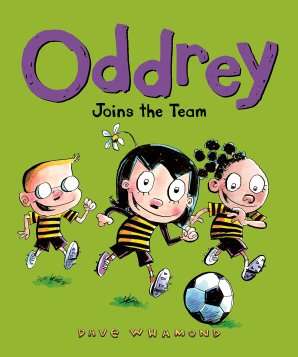













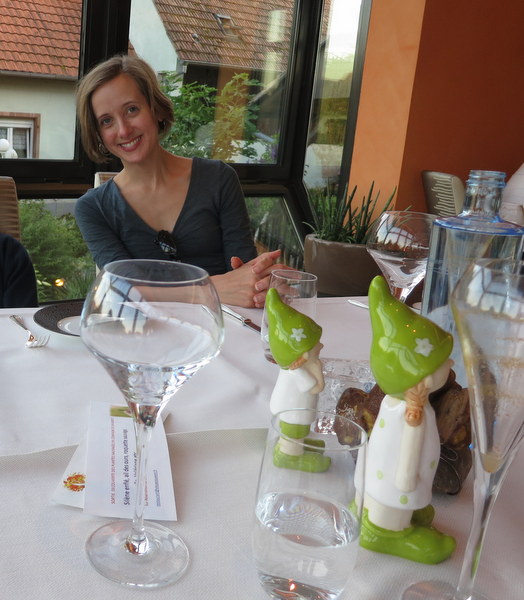

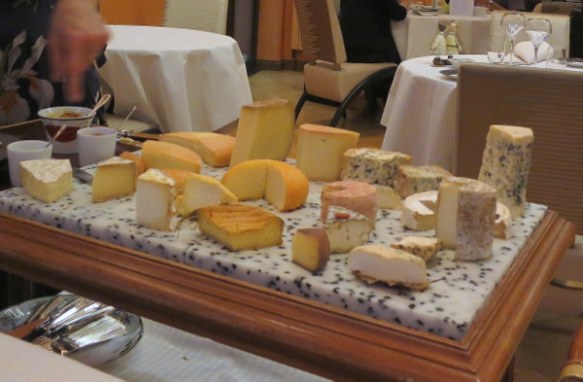
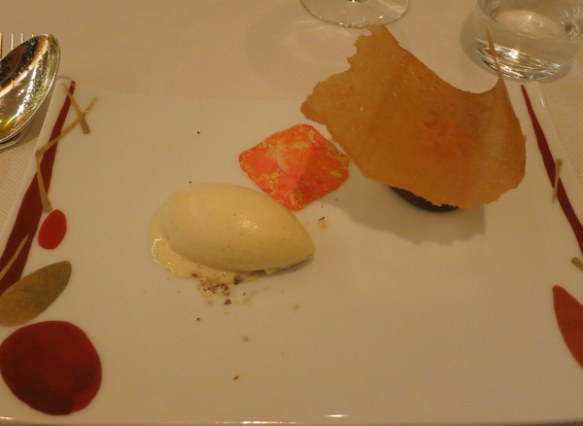
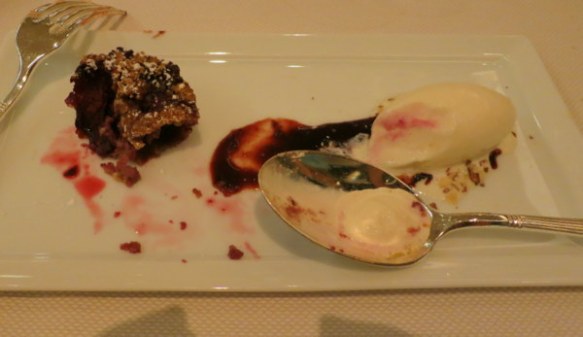

















Oh how fun! I totally would have eaten every bite as well!:-)
I’m ready to explode just reading about it and seeing the photos…bon appetit had by all. What better way to vaycay!
Thanks, Donna! It was definitely a memorable night.
Yes, that was really the only thing to do :)